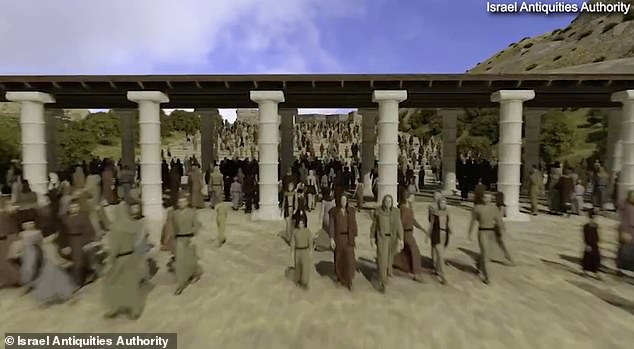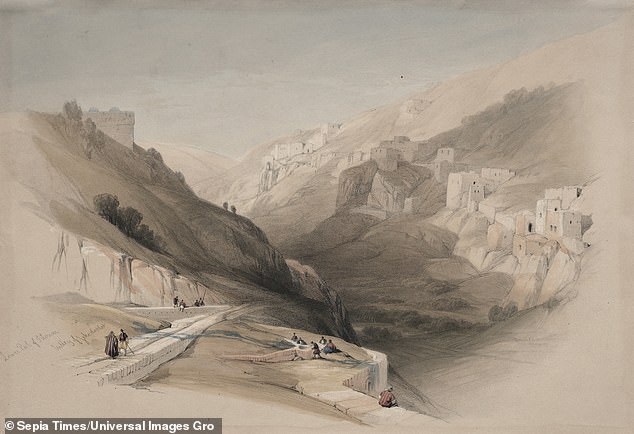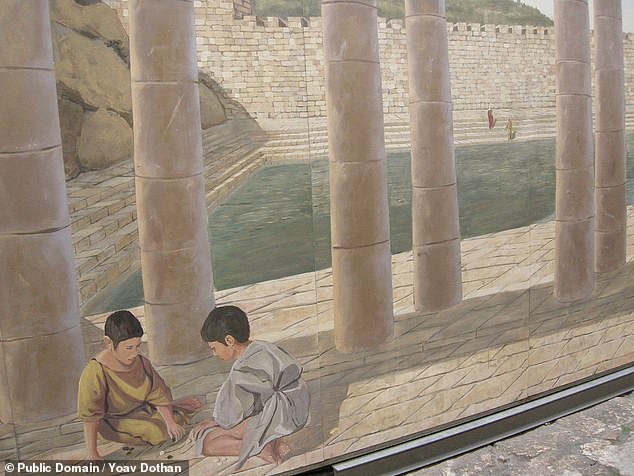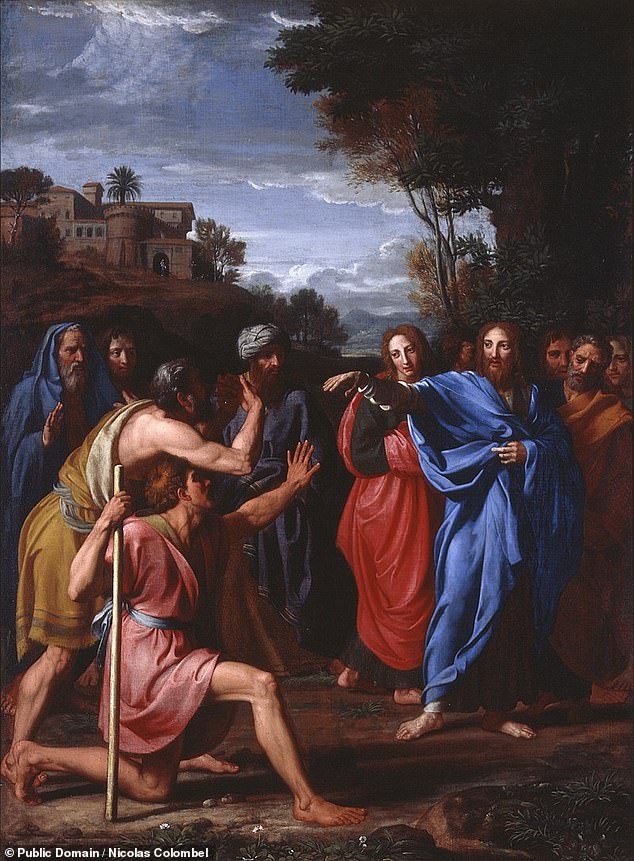Biblical site in Israel will be opened to the public for the first time in 2,000 years
>
A biblical site where Jesus is said to have healed a blind man will soon be opened to the public for the first time in 2,000 years.
The Pool of Siloam, located in the southern part of the City of David archaeological site in Jerusalem, is cherished by Christians and Jews.
It is currently being excavated by archaeologists and will either be opened to the public piece by piece or once the entire site is unearthed.
This is expected to take several years.

The Pool of Siloam, where Jesus is said to have healed a blind man, will soon be opened to the public for the first time in 2,000 years. This is a still image from an animation recreating the site


The pool, which is located in the southern part of the City of David archaeological site in Jerusalem, is cherished by Christians and Jews
It will allow visitors to see the site and the progress being made in exposing it.
Members of the public have already been able to access a small section of the pool which has been fully excavated, but it will be a little while longer before people can truly ‘walk in the footsteps of the Bible’.
Plans to open up the Pool of Siloam were announced just before the new year by the Israel Antiquities Authority, the Israel National Parks Authority and the City of David Foundation.
The site was built around 2,700 years ago as part of Jerusalem’s water system in the eighth century B.C.
It served as a reservoir for the Gihon Spring from which water was diverted and stored in underground tunnels.
‘The Pool of Siloam in the City of David National Park in Jerusalem is a site of historic, national and international significance,’ said Jerusalem’s mayor Moshe Lion.
‘After many years of anticipation, we will soon merit being able to uncover this important site and make it accessible to the millions of visitors visiting Jerusalem each year.’
Construction of the pool began during the reign of King Hezekia as cited in the Bible in the Book of Kings II, 20:20, according to the two Israeli agencies and the City of David Foundation.
‘The Pool of Siloam’s excavation is highly significant to Christians around the world,’ American Pastor John Hagee, the founder and chairman of Christians United for Israel, told Fox News Digital.
‘It was at this site that Jesus healed the blind man (John:9), and it is at this site that, 2,000 years ago, Jewish pilgrims cleansed themselves prior to entering the Second Temple.’
He added that the Pool of Siloam and the Pilgrimage Road, both located within the City of David, were ‘among the most inspiring archeological affirmations of the Bible’.
Ze’ev Orenstein, the director of international affairs for the City of David Foundation in Jerusalem, said the site was significant to ‘billions around the world’ and would be ‘made fully accessible for the first time in 2,000 years’.
He added that the millions of people visiting the City of David every year would ‘literally be able to walk in the footsteps of the Bible, connecting with the roots of their heritage and identity’.


The site was built around 2,700 years ago as part of Jerusalem’s water system in the eighth century B.C. It is pictured in this artist’s impression


According to the bible, the Pool of Siloam was the location where Jesus performed the miracle of healing a man born blind
Three years ago Israel unveiled the 2,000-year-old Pilgrimage Road after an £80million project to excavate it from beneath a Palestinian neighbourhood.
It was discovered by accident in 2004 by workmen mending a broken pipe in a potato field.
The 350-yard ancient road served as the main thoroughfare for visitors to the ancient Jewish temple, while Jesus is also said to have used it to reach the Temple in Jerusalem.
It led to the temple from the Pool of Siloam, where pilgrims would cleanse themselves before visiting it.
According to the bible, it was also the location where Jesus performed the miracle of healing a man born blind.


The site in Jerusalem is currently being excavated by archaeologists and will either be opened to the public piece by piece or once the entire site is unearthed
If you enjoyed this article, you might like…
Snakes have a clitoris too: Scientists discover the erogenous zone in nine species for the first time
It’s a wasp-eat-wasp world! Cannibal wasp babies devour their SIBLINGS when food runs low, study reveals
Think twice before killing that fly! Insects DO feel pain and should be included in animal welfare protections, scientists claim as insect farming ramps up
